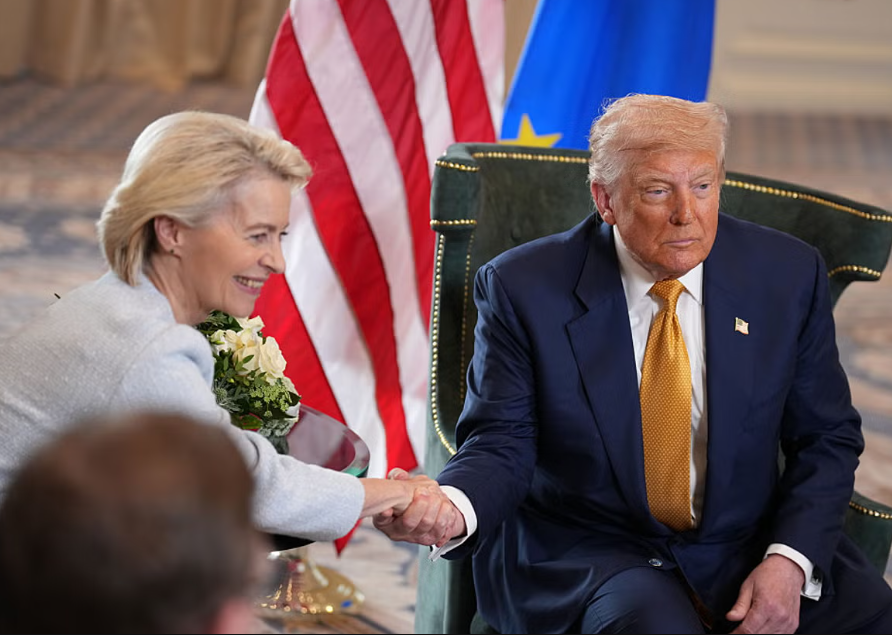Euro and US Stock Futures Rise After US-European Trade Deal

Financial markets responded positively to the trade deal announced by US President Donald Trump and European Commission President Ursula von der Leyen on Sunday, with the Euro and US stock futures recording significant gains. This agreement comes at a sensitive time ahead of the deadline set by Washington to impose new tariffs, providing some clarity on trade stability prospects.
The direct impact of the agreement was evident in the Euro's recovery against major currencies, jumping to $1.176 against the Dollar, making slight gains against the British Pound and the Japanese Yen. On the other side of the Atlantic, US stock index futures showed positive momentum as trading resumed, with S&P 500 and Nasdaq futures rising to varying degrees, while Nikkei futures followed the same path.
The essence of the agreement lies in reducing tariffs on European goods to 15% instead of the previously threatened 30% by the US administration, with provisions for purchasing US energy and defense equipment exceeding $750 billion. However, the agreement, resembling aspects of the deal made with Japan last week, did not resolve all pending issues such as alcohol tariffs, according to informed sources.
Analyzing the developments, Rick Meckler of Cherry Lane Investments noted that market reaction would be similar to the response to the Japanese agreement, warning of potential inflation implications due to increased burdens on producers and consumers. Meanwhile, Michael Brown of Piperstone viewed the agreement as reducing trade escalation risks, while Holger Schmieding of Berenberg described the results as "better than expected but below pre-trade war levels".
This development follows a series of intensive negotiations culminating in von der Leyen's visit to Scotland to resolve final obstacles. She expressed relief at crisis containment, indicating that tariffs would affect vital sectors such as automobiles, semiconductors, and pharmaceuticals.
Meanwhile, investors anxiously await the upcoming deadline on August 1st, which may see the imposition of new tariffs on a broader scale, testing the stability of these agreements.